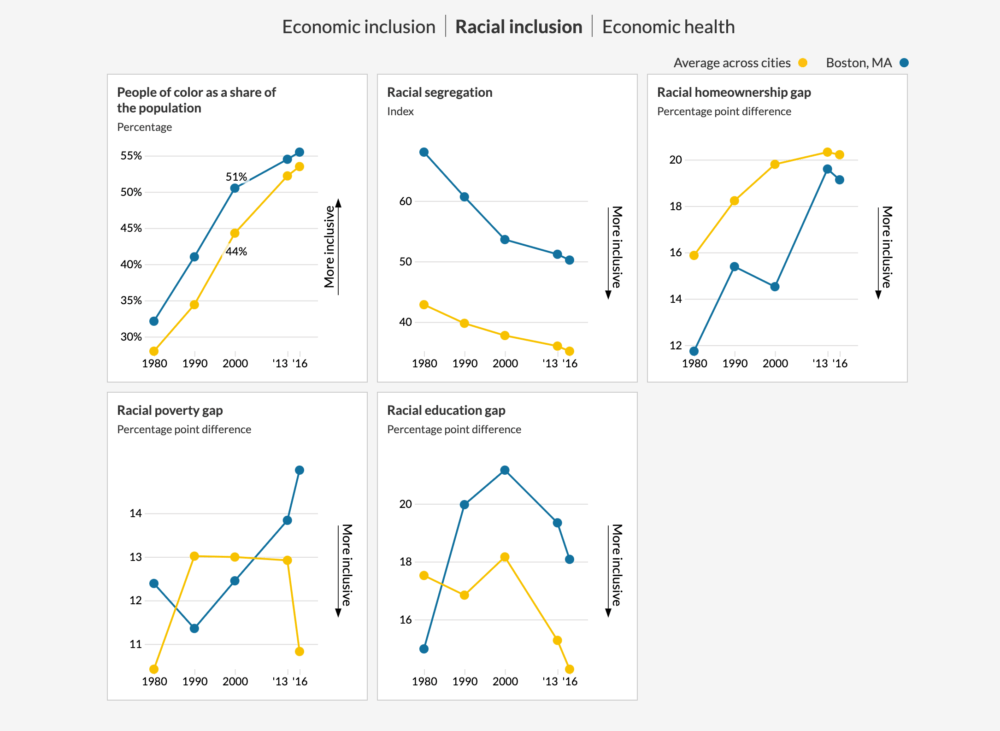Advertisement
Boston Among Bottom Third Of American Cities For Racial Inclusion, Study Finds

The racial poverty gap progressively widened in Boston since 1990, bucking a trend in the opposite direction of other U.S. cities, according to new research from the nonprofit Urban Institute.
The study looked at how equitable the economy is for all city residents — as well as how the economic indicators break down along racial lines.
Tina Stacy, a researcher at the Urban Institute, said that among 274 cities Boston ranks 151st in terms of economic and racial inclusion combined.
"Driving these changes were increasing rates of income segregation [and] increases in the racial poverty gap — meaning that the gap between the poverty rate for people of color compared to white, non-Hispanic residents increased," Stacy said.
Based on the latest available census data, the analysis showed a 15% gap between the poverty rate for white people and people of color in Boston in 2016. In the other 273 cities that gap was 11%, and unlike in Boston, the percentage had decreased in recent decades.
The study drew on data from 1980 to 2016. During that period, Boston never ranked in as an especially economically or racially inclusive city. It placed at 109th in 1980 and 98th in 2000. But Boston's level of inclusion only worsened over the last two decades, sinking to 151st nationwide.

Compared to large cities across the U.S., Boston ranks 81st in economic inclusion, and 204th in racial inclusion.
The city across the Charles River tells a different story, the data showed. Cambridge ranks 25th among its counterparts for overall inclusion, meaning how equitable the economy is along lines of race and class.
Consistent with the rest of the cities in the study, the data showed improvements in Boston's racial education gap, as well as racial segregation in the city.
Stacy cautioned against blaming policymakers for Boston's lack of inclusivity, saying economic forces could be the culprit despite efforts to the contrary.
"And we don't know what the counterfactual is," she said. "Maybe without those efforts, those numbers would look even worse over time."
"We want [this ranking] to be ... an opportunity to identify areas of improvement."
